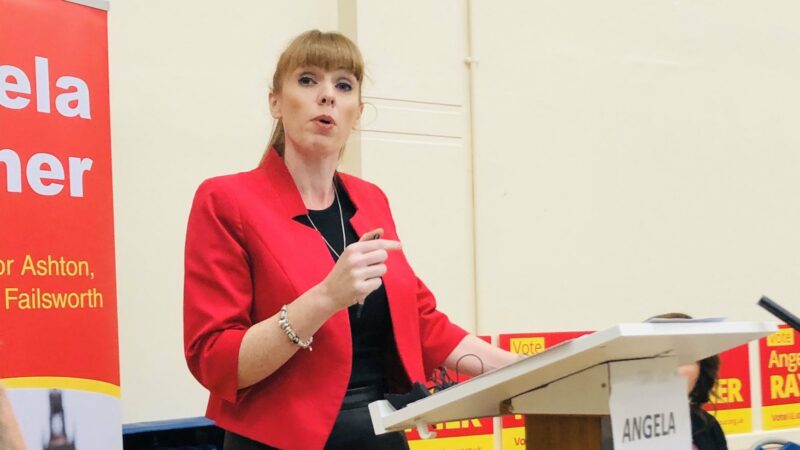
For a long time, I did not talk about my background. And it was in no small part thanks to the support and encouragement of the labour movement that I came to talk of it – not as a sign of weakness but of strength. Over the past few years, many women have told me their own stories of their hesitation in speaking up when they have something to say, or that voice in the back of their minds questioning whether they are good enough.
I tell my story because I want other women to see that a teenage mum who didn’t have two GCSEs to rub together can be on BBC Question Time, at the despatch box and stand to be deputy leader of the biggest political party in Europe.
Polling released by my campaign on International Women’s Day shows just how important that is. Not only are women less likely to apply for a promotion at work, the number one reason women gave for not putting themselves forward was a lack of confidence. The top reason for men, on the other hand, was that they were already happy in their current job.
It is the same in our public life, with women half as likely as men to consider standing for office. Education and class play a role, too. Graduates are twice as likely to consider speaking in public, while only 17% of people with no formal qualifications would consider standing for office. There are similar divides by income and between profession or manual workers.
Having dropped out of school and worked as a home help on poverty pay, I know we are missing out on so much potential. As a UNISON shop steward, I negotiated a groundbreaking deal to get proper training for the care workers I represented.
I still remember the transformation in the women I worked alongside as they graduated with foundation degrees – for most, their first formal qualification – and the pride that many of their children felt too. A cycle was broken. Not only did they deliver a better service for better pay but education gave them confidence and power.
The positive news from our poll was that Labour voters are more interested in being a candidate than other parties, with nearly 40% prepared to consider it. That is nothing short of amazing. My ‘Manifesto for a Movement’ sets out plans to reconnect with our voters, empower our grassroots and become embedded in our communities. And these figures show our potential.
There are women leaders in our communities and workplaces. They may not see themselves as leaders – yet – but they are who people turn to for help, who collect for the local food bank or run the charity shop. Fewer than one in five over 55s said that they would consider standing for office – and yet having worked with some amazing WASPI women in their fight, I can’t help but think I want them in our local parties, organising our campaigns and running our councils.
We need to extend positive action, improve our training and support networks, develop leaders, empower activists and make our structures more accessible. But we can’t stop there. Our purpose as a party must remain a more fundamental shift in society too.
That’s why we must offer a right to lifelong learning, including paid time off for training and maintenance support in adult education, empowering people at all stages and ages in life. Women will especially benefit, but so will we all – as it is, we are losing out on their lost potential. An equal economy is more efficient, too.
We can champion an overhaul of work that not only tackles the gender pay gap but the gender power gap as well. I would defend our policies to transform work but extend them too, with a right to time off for public duties so that today’s social carers or warehouse operatives are not denied access to democracy because they are on zero-hours contracts or shift work.
Even in opposition, we can lead. Our poll found that, for 57% of women, seeing someone of their background succeed would give them confidence to try themselves. That is why I tell my story: precisely because I’m not special. There are so many more women like me out there, and Labour can unlock their potential.




More from LabourList
‘Tackling poverty should be the legacy of Keir Starmer’s government’
‘The High Court judgment brings more uncertainty for the trans community’
‘There are good and bad businesses. Labour needs to be able to explain the difference’